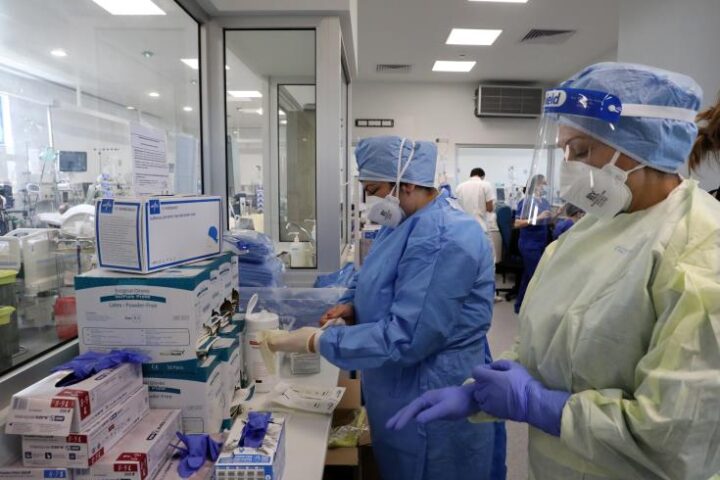The Finance Ministry revealed new fiscal risks in its Strategic Framework for Fiscal Policy 2022-2024 report linked to Cyprus’ General Healthcare System.
Many of the issues that remain troubling are related to the abuse of the system, not only from the people but also from some doctors.
Although efforts have been constant to deal with such abusive practices, the government resorted to an advertising campaign pleading with the people not to abuse the system.
Some people think this is their chance to check everything with their health and ask their doctor to facilitate check-ups and various other medical examinations that would have been avoided if they had to pay for them.
Economists would have preferred an excess amount to be paid for any such request to prevent unnecessary requests to GPs.
A surgeon who spoke to us on condition of anonymity told us, “It is not difficult for doctors who want to abuse the system to do so.”
He complained that certain operations are under-priced by the GHS, and successful doctors with a private practice prefer to avoid them or simply give an appointment far into the future.
Employers are also heavily burdened by the system, and sooner rather than later, the government will have to ask for more contributions unless it manages to fix the system.
The system leaves much to be desired, and markets may offer much more efficient solutions.
I asked Dr Petros Agathangelou, a cardiologist and chairman of the Cyprus Medical Association (CyMA), to comment on the current state of affairs.
What do you think of the increasing abuse of the health system?
Indeed, the term “abuse” has been widely used over the last few months when referring to the General Healthcare System (GHS).
However, when you drill into the interpretation of the term, it actually defines practices that are inconsistent with accepted sound fiscal, business, or medical practices and result in an unnecessary cost or in reimbursement for services that are not medically necessary or that fail to meet professionally recognised standards for healthcare.
I can hardly believe that any medical practitioner intends to perform such acts.
However, adopting a different perspective in this matter, I believe the “over-use” of healthcare services during the last few months is possibly linked to how the GHS has been designed.
Certain provisions should have been made from the beginning, before implementing the GHS, to ensure that risk mitigation strategies and specific measures are in place to secure better control over the system and, by extension, its financial sustainability.
The Cyprus Medical Association, over the last couple of years, has made tremendous efforts to alert the architects of the GHS for the need to put in place specific evidence-based and not numerical-based mechanisms for mitigating the risk of “misuse”.
We believe it is important to adopt accountability-enhancing strategies. And clear accountabilities assigned to all stakeholders (doctors, medical providers, beneficiaries), allowing better compliance with medical protocols and guidelines and oversight, monitoring and reporting overspending.
If irregularities are observed, a Supervisory Board should be accountable to investigate the matter further and reach a conclusion by utilising evidence-based medical protocols and guidelines.
Additionally, valuable insights for identifying any misuse patterns and potentially improper relationships can be identified by leveraging historical data.
Hence, the protocols and guidelines should be updated to stay current with the changing conditions.
Another important measure that we suggest is the ongoing training of GPs to ensure that they understand and follow the regulatory rules and guidelines.
Additionally, the GHS should have adopted measures to inform the public to avoid abusing the system for unnecessary examinations unless prescribed by the doctor and strictly based on the history, physical examination, and differential diagnosis.
Will your proposed measures ensure the survival of the system without compromising the quality or integrity?
Before the implementation of the GHS, the Cyprus healthcare system was ranked amongst the most effective and high-performing healthcare systems among EU member states; this kind of quality is the one that should be safeguarded and should be provided through the GHS.
We strongly believe that adopting a holistic “Risk Mitigation Framework” as the one just described, which assigns specific accountabilities to all stakeholders, coupled with the adoption of leading practices that other national healthcare systems have successfully adopted, will significantly enhance the provision of value-based care.
Also, by setting performance-related accountabilities linked to the evidence-based quality of care standards and conducting regular audits, the quality and integrity of the healthcare provided will be enhanced, and corrective measures can be adopted.
Michael S. Olympios is an economist, business advisor, Editorial Consultant to the Financial Mirror










